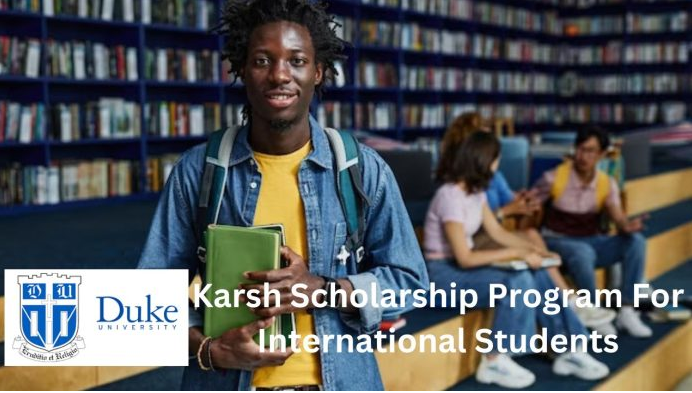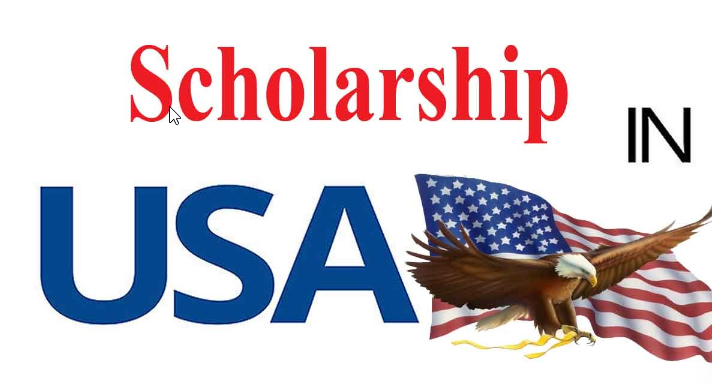here’s a list of 10 prestigious university study abroad scholarship programs for students:
- Fulbright Program: Offers scholarships for international educational exchange for students, scholars, teachers, professionals, scientists, and artists.
- Rhodes Scholarship: One of the oldest and most prestigious international scholarship programs, offering fully-funded opportunities to study at the University of Oxford.
- Chevening Scholarships: Funded by the UK government, this program provides full financial support to study for a master’s degree at any UK university.
- Erasmus+ Scholarships: Provides opportunities for students to study or train in another European country as part of their degree.
- Marshall Scholarship: Offers high-achieving American students the opportunity to pursue graduate studies at any UK institution.
- Gates Cambridge Scholarship: Fully funded scholarships for international students to study at the University of Cambridge in the UK.
- DAAD Scholarships: German Academic Exchange Service offers a wide range of scholarships for international students to study in Germany.
- Rotary Foundation Global Grants: Provides funding for graduate-level coursework or research for one to four academic years.
- Australia Awards Scholarships: Scholarships for international students from developing countries to study in Australia at undergraduate or postgraduate level.
- New Zealand Scholarships: Funded by the New Zealand government, these scholarships provide opportunities for students from selected developing countries to study in New Zealand.
These are just a few examples of the many scholarship programs available for students seeking to study abroad. Each program has its own eligibility criteria, application process, and deadlines, so it’s important for students to thoroughly research each opportunity and determine which ones best suit their needs and qualifications.
The Fulbright Program is one of the most prestigious scholarship programs for international educational exchange. It offers several types of scholarships for students, each tailored to different stages of academic and professional development. Here are some of the main Fulbright scholarship programs for students:
- Fulbright U.S. Student Program: This program provides grants for graduating seniors, graduate students, young professionals, and artists to study, conduct research, or teach English abroad for one academic year. It is open to U.S. citizens.
- Fulbright Foreign Student Program: Designed for graduate students, young professionals, and artists from abroad, this program offers opportunities to study and conduct research in the United States. It is open to citizens of more than 160 countries.
- Fulbright English Teaching Assistant (ETA) Program: This program places recent college graduates and young professionals as English teaching assistants in schools or universities overseas for one academic year. It aims to improve foreign students’ English language abilities and provide them with a better understanding of the United States.
- Fulbright-Hays Doctoral Dissertation Research Abroad (DDRA) Program: Administered by the U.S. Department of Education, this program provides grants to doctoral students to conduct research in other countries in modern foreign languages and area studies for six to 12 months.
- Fulbright-National Geographic Storytelling Fellowship: This unique program offers opportunities for U.S. citizens to participate in an academic year of storytelling on a globally significant theme. Fellows receive training in storytelling techniques and work with National Geographic staff and editors to produce digital stories.
These are just a few examples of the Fulbright scholarship programs available to students. Each program has its own specific eligibility criteria, application process, and deadlines, so it’s essential for applicants to carefully review the requirements and guidelines provided by the Fulbright Program.
The Rhodes Scholarship is one of the most prestigious international scholarship programs, offering opportunities for outstanding students to study at the University of Oxford in the United Kingdom. Here are the main details about the Rhodes Scholarship:
- Origin: Established in 1902 through the will of British philanthropist Cecil Rhodes, the Rhodes Scholarship aims to nurture future leaders, outstanding scholars, and individuals with a commitment to service.
- Eligibility: Applicants for the Rhodes Scholarship must be citizens of eligible countries (currently including the United States, Canada, Australia, New Zealand, and various African and Caribbean countries), and typically must have completed or expect to complete an undergraduate degree with strong academic records.
- Selection Criteria: The selection criteria for the Rhodes Scholarship include academic excellence, leadership potential, a commitment to service, and a well-defined plan of study at the University of Oxford.
- Application Process: The application process for the Rhodes Scholarship typically involves submitting a detailed application form, academic transcripts, letters of recommendation, a personal statement, and possibly other materials such as a CV and essays. Finalists are usually invited to participate in interviews.
- Benefits: Rhodes Scholars receive full financial support for their studies at the University of Oxford, including tuition, fees, living expenses, and travel expenses to and from Oxford.
- Duration: The Rhodes Scholarship funds two to three years of study at the University of Oxford, depending on the course of study pursued by the scholar.
- Fields of Study: Rhodes Scholars may pursue any full-time postgraduate degree offered by the University of Oxford, including master’s degrees (such as the MSc, MSt, or MPhil) and doctoral degrees (such as the DPhil).
- Community: Rhodes Scholars become part of a diverse and global community of past and present scholars, known as the “Rhodes Trust,” which offers networking opportunities, mentorship, and support.
Overall, the Rhodes Scholarship is highly competitive and prestigious, and recipients have the opportunity to pursue world-class education at one of the oldest and most respected universities in the world.
The Erasmus+ program offers a range of scholarship opportunities for students, academics, and institutions across Europe and beyond. Here’s an overview of the Erasmus+ scholarships available for students:
- Erasmus Mundus Joint Master Degrees (EMJMDs): These are prestigious, integrated international study programs jointly delivered by a consortium of higher education institutions from different countries. EMJMDs offer full scholarships for excellent students worldwide to pursue master’s degrees in various fields.
- Erasmus+ Study Mobility: This component of the Erasmus+ program provides grants for students to study abroad at a partner university in another European country for a period of three to twelve months as part of their higher education degree.
- Erasmus+ Traineeships: This strand of the Erasmus+ program supports students undertaking a work placement or traineeship in an enterprise or organization in another participating country. The duration can vary from two to twelve months.
- Erasmus Mundus Joint Doctorates (EMJDs): These are doctoral-level scholarships funded by Erasmus+ for joint or double doctorate degrees offered by consortia of higher education institutions from different countries. EMJDs aim to promote international cooperation in doctoral education.
- Erasmus Mundus Action 2: This strand of the Erasmus+ program provides scholarships for mobility opportunities between European and non-European countries at undergraduate, master’s, doctoral, and postdoctoral levels, fostering cooperation and exchanges in higher education.
- Erasmus+ Master Loan Guarantee Facility: This financial instrument aims to support master’s students from participating countries by providing favorable loans to contribute to their costs while studying for a master’s degree abroad.
- Erasmus+ Virtual Exchange: This innovative program offers digital learning opportunities for students to engage in intercultural experiences, dialogue, and collaboration with peers from other countries through online courses, exchanges, and facilitated dialogue sessions.
- Erasmus+ Capacity Building in Higher Education: This component of the Erasmus+ program supports the modernization, accessibility, and internationalization of higher education institutions in partner countries through funding for joint projects, scholarships, and mobility activities.
These are some of the main Erasmus+ scholarship opportunities available for students. Each opportunity has its own eligibility criteria, application process, and deadlines, so it’s important for students to carefully review the Erasmus+ website or contact their institution’s Erasmus+ office for more information.






